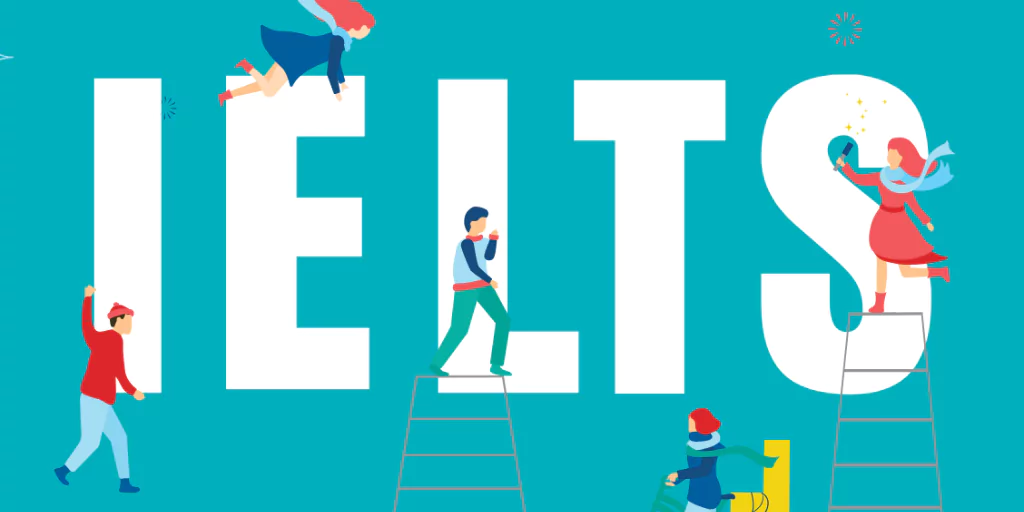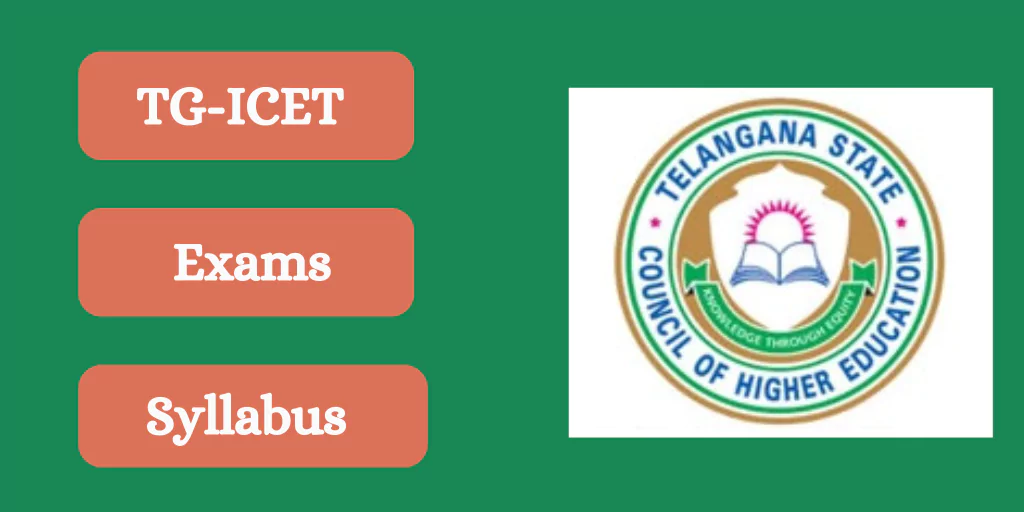The International English Language Testing System (IELTS) is one of the world’s most trusted English proficiency exams. It serves as a gateway for students, professionals, and immigrants who wish to study, work, or settle in English-speaking countries. As we move into 2026, understanding the IELTS structure, scoring, and preparation strategies has become essential for anyone aiming to achieve their global dreams.
Also See: SAT and ACT Exams 2026
What Is IELTS?

1. The International English Language Testing System is known as the International English Language Testing System. It evaluates a candidate’s proficiency in four essential English communication skills: speaking, reading, writing, and listening.
2. The British Council, IDP: IELTS Australia, and Cambridge Assessment English collaborate to administer the exam, guaranteeing its universal acceptance and uniformity.
Why Take the IELTS Exam?

More than 11,000 organisations around the world, including businesses, universities, immigration authorities, and professional associations, recognise the International English Language Testing System exam.
IELTS is significant for the following reasons:
- Most English-speaking universities (such as those in the UK, Canada, Australia, and the USA) require university admissions.
- Migration: Approved for immigration and visa purposes in the UK, Canada, Australia, and New Zealand.
- Career Opportunities: Improves employment opportunities both domestically and overseas.
- Proof of English Proficiency: Known throughout the world as a trustworthy measure of English proficiency.
Types of IELTS Tests
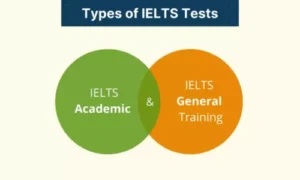
Depending on your goal, IELTS offers two primary test formats:
1. IELTS Academic: For students registering for professional programs or applying to institutions.
2. IELTS General Training: For training, employment, or immigration.
Additionally, there is a new version known as IELTS for UKVI that is intended exclusively for applicants for UK visas.
IELTS Test Format
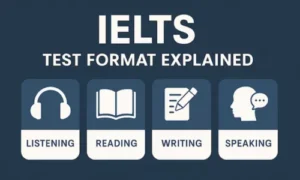
The International English Language Testing System test covers four language skills. Here’s a quick breakdown:
| Section | Duration | Details |
|---|---|---|
| Listening | 30 minutes | 4 recordings of native English speakers with 40 questions |
| Reading | 60 minutes | 3 sections (Academic or General) with 40 questions |
| Writing | 60 minutes | 2 tasks (essay & letter/report) |
| Speaking | 11–14 minutes | Face-to-face interview with an examiner |
Preparation Tips for IELTS 2026

Here are some smart strategies to score high in IELTS:
- Understand the Test Format – Know the question types and timing.
- Practice Speaking Daily – Converse in English regularly to improve fluency.
- Listen to English Podcasts and News – Helps in accent recognition and comprehension.
- Write Essays and Letters – Develop grammar, structure, and vocabulary.
- Read English Articles – Improve speed and understanding for the Reading section.
- Take Mock Tests – Practice under real test conditions for time management.
IELTS 2026 Exam Fees and validity of IELTS score
In 2026, IELTS exam fees in India typically vary from ₹16,250 to ₹17,500, depending on the modality (computer-based or paper-based) and location. Your International English Language Testing System test score is valid for two years from the exam date. You can retake the test whenever you want to improve your score.
How to Register for IELTS 2026
You can register for the IELTS 2026 exam at the official IELTS website or an authorised centre (IDP or British Council).
Steps for applying:
- Visit the official IELTS website.
- Select your preferred test type (academic or general).
- Choose your local exam facility and date.
- Fill out the online form and pay the test fee.
- Receive your confirmation email with test information.
IELTS test dates & Exam Fees 2026
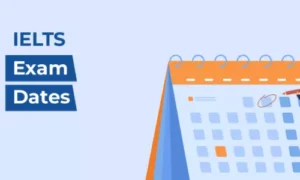
1. The International English Language Testing System exam is offered multiple times per month, giving test takers flexibility.
2. You can choose a test date that is convenient for you; however, it is preferable to book at least 2-3 months in advance to ensure your desired time slot.
3. In 2026, IELTS exam fees in India typically vary from ₹16,250 to ₹17,500, depending on the modality (computer-based or paper-based) and location.
Conclusion
IELTS is more than just an exam; it’s a gateway to opportunities around the world. Whether you want to move, study abroad, or advance your career, getting a high International English Language Testing System score in 2026 can lead to many opportunities. You can achieve success if you practice, manage your time well, and prepare consistently.


